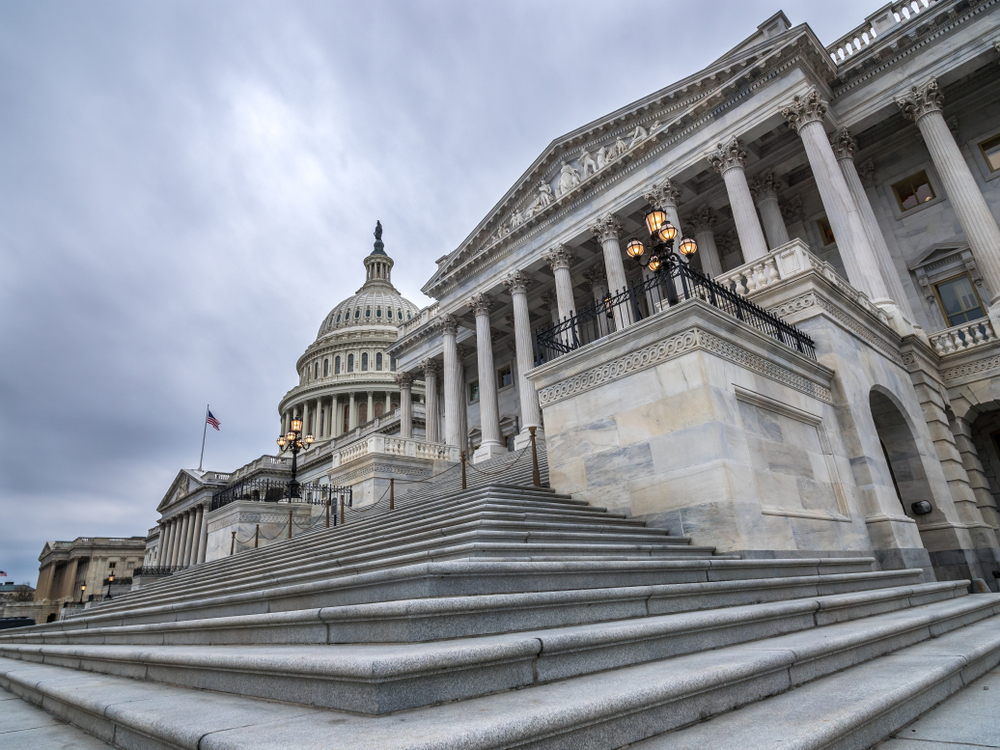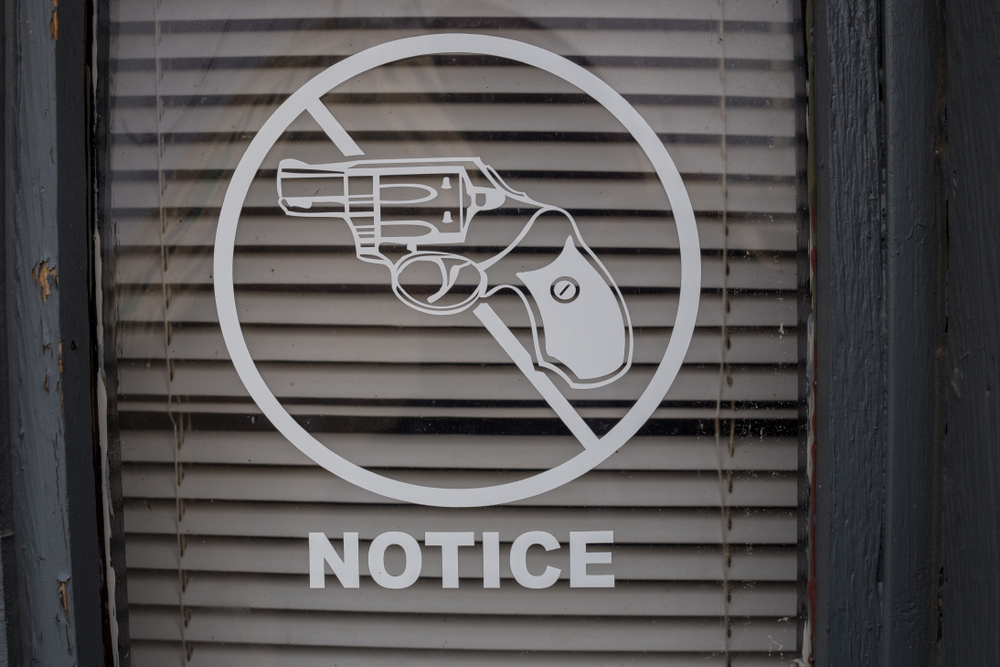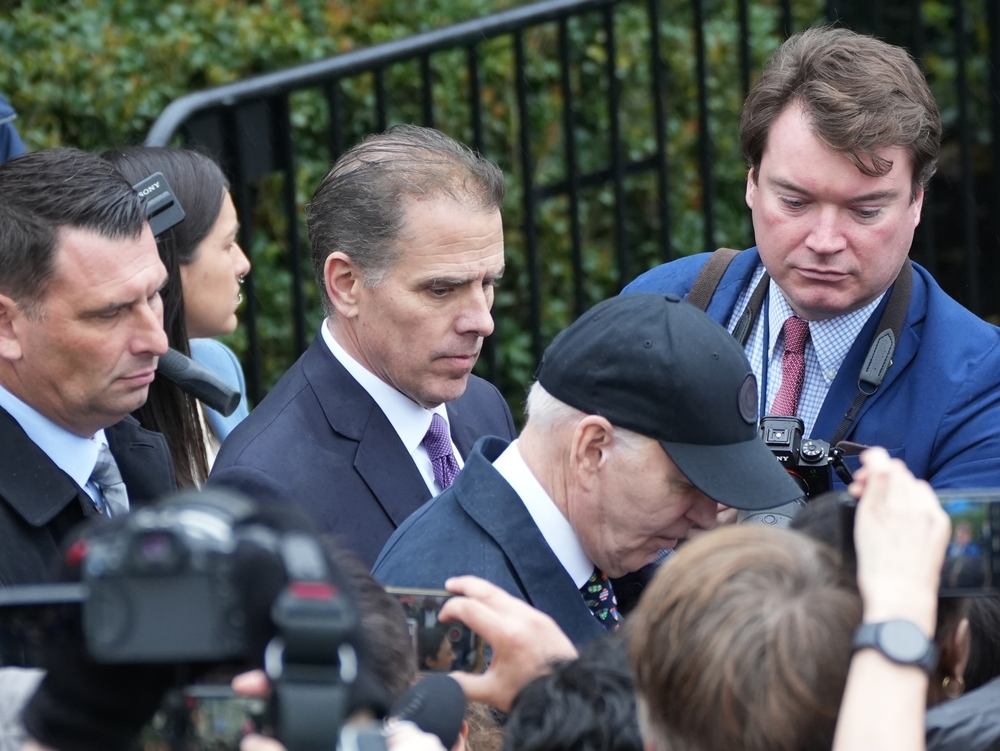2A Newsletter Week of June 7th
 Photo Source: Shutterstock via Framalicious
Photo Source: Shutterstock via Framalicious
Lawmaker Supported by Anti-Gun Advocates Introduces Sweeping Semi-Auto Ban to Congress
Rep. Lucy McBath (D-GA-07) has introduced H.R.8600, the Gas-Operated Semi-Automatic Firearms Exclusion (GOSAFE) Act, aiming to impose heavy federal regulation on certain gas-operated semi-automatic firearms, large-capacity magazines, and related modifications. Along with Senators Martin Heinrich (D-NM), Angus King (I-ME), Mark Kelly (D-AZ), and Michael Bennet (D-CO), Rep. McBath is pushing this legislation. They’re framing it as a measure to reduce gun violence, but it represents a direct and dangerous infringement on the Second Amendment rights of American citizens.
The GOSAFE Act is a thinly veiled attempt to revive the assault weapons ban under a new name. By targeting gas-operated semi-automatic firearms, the bill aims to impose heavy federal regulations on a wide range of commonly owned firearms. This rebranding effort is a clear strategy to circumvent opposition and gain broader support by avoiding the controversial term "assault weapons." However, the legislation's goal remains the same: it seeks to restrict the rights of law-abiding citizens to own and use these firearms for self-defense, hunting, and sporting purposes. This bill represents a significant threat to our Second Amendment rights and sets a dangerous precedent for future gun control measures.
The GOSAFE Act would:
- Regulate the sale, transfer, and manufacture of gas-operated semi-automatic firearms.
- Establish a list of prohibited firearms.
- Prevent lawful modifications of permissible firearms.
- Mandate that future gas-operated designs be approved before manufacture.
- Prevent lawful firearm self-assembly and manufacturing.
- Limit high-capacity ammunition devices.
The proposed legislation is backed by various gun control advocacy groups, including Everytown for Gun Safety and Giffords, but it has sparked outrage among Second Amendment supporters who see it as a blatant attack on their constitutional rights. The Second Amendment of the United States Constitution clearly states, "The right of the people to keep and bear Arms, shall not be infringed." This legislation, by imposing sweeping federal regulations and creating new categories of prohibited firearms, directly contradicts this constitutional guarantee. It undermines the fundamental principle that individuals have the right to defend themselves and their families.
Moreover, such measures fail to address the root causes of violence and instead unfairly target responsible gun owners. The focus should be on enforcing existing laws, addressing mental health issues, and strengthening community safety initiatives, not stripping away the rights of law-abiding Americans.
Rep. McBath's introduction of the GOSAFE Act is only a part of a broader agenda to impose stricter gun control measures. However, this approach is misguided. The fight to protect the Second Amendment continues as citizens and advocacy groups push back against these unconstitutional restrictions on our liberties.
We must stand together to protect our Second Amendment rights. We urge all supporters of the Constitution to contact their representatives and express their opposition to H.R.8600, the GOSAFE Act. Make your voice heard by calling, writing, and visiting your lawmakers to demand that they reject this overreaching legislation.
Take Action Now
- Call your representatives and tell them to vote NO on H.R.8600.
- Write letters and emails to your senators expressing your concerns.
- Join pro-Second Amendment groups and participate in advocacy efforts.
- Spread awareness on social media and within your community.
Our rights are at stake. Stand up and defend the Second Amendment. Join pro-Second Amendment organizations, participate in local rallies, and spread the word about the importance of preserving our constitutional rights. Together, we can ensure that the right to keep and bear arms remains protected for future generations.
 Photo Source: Shutterstock via R. Wellen Photography
Photo Source: Shutterstock via R. Wellen Photography
Governor Polis Enacts Another Gun Restriction Law
Governor Jared Polis has signed a controversial new law that criminalizes the knowing possession of firearms on school grounds, polling places, and within government buildings. Effective July 1st, this sweeping measure encompasses both open and concealed carry of firearms and applies to a wide range of locations, including public and private schools, colleges, universities, and childcare centers.
While the law makes exceptions for law enforcement, military, and security personnel, as well as individuals carrying firearms for official duties, it imposes strict penalties on the average citizen exercising their Second Amendment rights. Concealed-carry permit holders are only allowed to have firearms in adjacent parking lots, further limiting their ability to protect themselves and others.
Local governments have the option to opt out of this ban, but Colorado has now made it a misdemeanor to knowingly carry a firearm onto school grounds, into a polling place, or inside a government building under this new law. The ban extends to the State Capitol and members of the General Assembly, raising constitutional concerns among Republican lawmakers who argue it impedes their ability to represent their constituents effectively.
Several proposed gun-free zones were removed from the bill as it progressed through the legislature, but the remaining provisions still represent a significant restriction on the rights of law-abiding gun owners. Despite fierce opposition, Senate Bill 131 was one of several new laws regulating firearm possession and sale to clear the legislature this year.
Governor Polis has also signed bills requiring secure storage of firearms in vehicles, allocating more funds to the Colorado Bureau of Investigation for investigating gun-related crimes, and mandating specific merchant codes for firearm and ammunition sales. Additional bills, including those requiring licenses for gun dealers and new concealed-carry permit requirements, await his decision.
In November, voters will face a proposed tax on sales of guns and ammunition, purportedly to fund mental health services and support for victims of domestic violence and other violent crimes. This ongoing legislative push represents a broader effort to impose more stringent gun control measures, burdening law-abiding citizens and raising alarms among Second Amendment advocates who see these actions as a direct threat to their constitutional rights.
 Photo Source: Shutterstock via Andrew Leyden
Photo Source: Shutterstock via Andrew Leyden
Jury Seated for Hunter Biden's Federal Firearms Trial
A jury has been seated in the federal firearms case against Hunter Biden, who faces three felony charges from a 2018 firearm purchase during his admitted crack addiction. Federal prosecutors described Hunter Biden as a “drug addict” who knowingly lied on federal forms to purchase a gun, despite his ongoing substance abuse issues.
Hunter Biden's attorney, Abbe Lowell, plans to call the president's brother, James Biden, as a witness, emphasizing their close relationship and James's support during Hunter's numerous rehab stints. "You will see that he is not guilty," Lowell asserted, though skepticism abounds.
The charges against Hunter Biden involve lying to a federally licensed gun dealer, falsely claiming on the application that he was not a drug user, and illegally possessing the gun for 11 days. Prosecutors revealed that Hunter Biden was attempting to procure drugs just days after the gun purchase, reinforcing their claim that he deliberately lied on the federal form.
In their opening statement, prosecutors played an audio excerpt from Hunter Biden's 2021 memoir, “Beautiful Things,” where he admitted his return to Delaware around the time of the gun purchase. “No one is allowed to lie on a federal form like that, even Hunter Biden,” stated federal prosecutor Derek Hines, highlighting that Biden knew he was a drug addict when he filled out the form. Addiction may be tragic, but it doesn’t excuse criminal behavior.
If convicted, Hunter Biden could face up to 25 years in prison. However, first-time offenders rarely receive the maximum sentence, and it is unclear whether the judge would impose any prison time.
The trial follows the collapse of a sweetheart plea deal that would have avoided a trial close to the 2024 election. Hunter Biden pleaded not guilty, arguing that he is being unfairly targeted by the Justice Department following Republican criticisms of the previous plea deal as preferential treatment for the president's son.
First lady Jill Biden and Hunter's sister Ashley Biden, who attended Monday's court session, were back in the courtroom as opening statements began. The presence of his exes is expected to bring to light personal and embarrassing details about his addiction, further complicating his defense.
Lowell argued that the form in question asks whether one “is” a drug user, not whether they “have ever been,” suggesting that Hunter Biden did not consider himself an addict at the time of the purchase. However, this flimsy defense does little to counter the evidence presented by the prosecution.
Jury selection moved quickly, with the final panel consisting of six men and six women, plus four alternates. Some prospective jurors were dismissed due to personal connections to the Biden family or strong opinions about drug use and gun ownership, highlighting the pervasive influence of the Biden name.
Hunter Biden also faces a trial in California in September on charges of failing to pay $1.4 million in taxes. Both cases were initially to be resolved through the collapsed plea deal, which included a guilty plea to misdemeanor tax offenses and a diversion agreement on the gun charge.
The trial of Hunter Biden unfolds as Attorney General Merrick Garland faces scrutiny from the Republican-led House Judiciary Committee, investigating the president and his family. These proceedings are likely to dredge up embarrassing and painful memories for the Bidens, painting a stark contrast to their public image.
President Joe Biden expressed his support for his son, stating, “I am the President, but I am also a Dad,” while maintaining that he would have no further comment on the case. As the trial underscores the intersection of legal battles and the 2024 campaign, the president faces increasing scrutiny over his ability to separate his personal and professional responsibilities amidst declining poll numbers and ongoing controversies.



 Back to List
Back to List